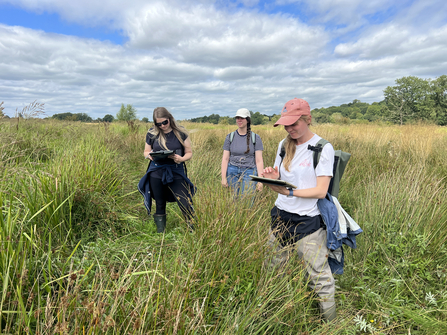What does a Responsible Body do?
Staffordshire Wildlife Trust was appointed as a Responsible Body by Defra in September 2024. As a Responsible Body, we are able to enter into legally-binding agreements with landowners and developers called ‘conservation covenants’, which establish the long-term protection of a landholding for nature conservation.
One of the key uses of a conservation covenant is to enable the delivery of Biodiversity Net Gain (BNG), a planning policy introduced earlier this year. BNG requires developers to leave the natural world in a better state than it was prior to their development being built. The rules mean that almost all developments must result in a minimum 10% increase in natural habitat, which can be delivered within their development itself or on land elsewhere.
As a Responsible Body, Staffordshire Wildlife Trust's role will include:
- Drawing up legally-binding conservation covenants with a landowner or BNG provider, which will set out the habitat improvements that must take place in order to deliver a net gain for nature
- Monitoring of the habitat restoration work to ensure it is carried out properly over the length of the agreement
- Taking enforcement action if there are any breaches of the agreement

Staffordshire Wildlife Trust is committed to delivering Gold Standard BNG across Staffordshire.
Benefits of conservation covenants
Conservation covenants provide an alternative legal mechanism to Section 106 agreements for securing biodiversity gain sites. One of the key benefits of a conservation covenant is that they take less time to obtain than a planning condition via the local authority. They also offer greater flexibility by providing a means of securing land for nature conservation without needing to purchase the land.
Conservation covenants secure long-term outcomes for nature conservation because they apply to both present and future owners of the land - the conservation commitments within an agreement are passed onto any future landowners.

WildNet - Lyndsey Maiden
Our approach
Becoming a Responsible Body is central to our commitment to deliver Gold Standard BNG across Staffordshire. We want to ensure that BNG is properly implemented: that habitat is created and restored to a high standard in the right places, in line with the county's Local Nature Recovery Strategy.
With many wild species in serious decline, our involvement in the creation of conservation covenants will play a key role in helping us achieve our ambition of 30% of land managed for nature in Staffordshire by 2030.
We will seek to work collaboratively with clients who will help us to meet our nature conservation goals and are committed to delivering genuine and measurable biodiversity gains.
If you'd like to enquire about working with us as a Responsible Body, please complete the form below.

